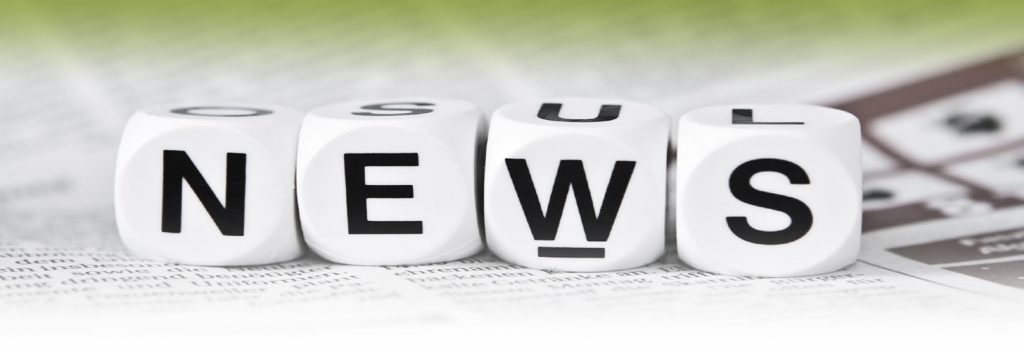
People have heard of housing loans or mortgages. They know it has something to do with property ownership. But do these things work? Real estate properties are pretty expensive, and they have only gotten more expensive as the years go by.
Prices of real estate properties even rose throughout the COVID-19 pandemic – despite the shutdowns and consequential economic downturns. While there are various factors contributing to this market that is a discussion for another time. We know that these properties are pretty expensive, and if a person is looking to purchase one and they are not reading this simple article on an iPad, then they are most likely going to need a housing loan.
What is a housing loan or mortgage?
Mortgages are loans that are used to purchase houses. The property then acts as collateral for the debenture, so if the property owner does not make their monthly payments, lending firms can seize the real estate property. That is the basic explanation, but when people factor in down payments, finance charges, and interest rates (IRs), the choice between adjustable- and fixed-rate housing debenture, in addition to other costs and variables, discussions about housing loans can quickly become complicated.
The basics of real estate property buying
So people want to enter the world of homeownership. Before they even start looking for a house, they will most likely need to look for pre-qualification from a housing credit broker, like conventional banks or other lending firms. After reporting the financial information to lending firms, financial institutions will give property owners an estimate of the kind of housing loans they may be able to get.
Approval process
People can also submit for preapproval for the beste lån uten sikkerhet or the best loan without collateral. Unlike a pre-qualification, this thing needs the lending firm to verify the person’s financial info, such as the person’s credit score, as well as their debt-to-income (DTI) ratio, instead of relying only on their self-reporting.
It is also part of the underwriting process. It is a process through which lending firms review a possible borrower’s qualification and decides whether they will extend the debenture offered accordingly or not. Preapprovals tend to show that individuals will be able to borrow a certain amount at a specific rate.
It means if there are potential property buyers interested in the same real estate, and one of the buyers is preapproved by financial institutions for the full price, there is a good chance that they will have a huge advantage over their competitor who was preapproved by a lending firm for a smaller credit.
Once the person is approved for their mortgage and the owner agrees to sell them the property, then they are home-free (except the property is not free, and there are more hoops to jump through before they can finalize their purchase). The process is almost done. All that is left are tons of paperwork and paying the upfront costs in addition to the cost of the house and the mortgage interest rate. Not to mention the homeowner’s insurance and property taxes.
The cost of real estate property ownership
Before individuals, even start paying their loan balance – or even finalize the debenture – they are going to have to absorb tons of other expenses.
Closing costs
This thing is essentially the expenses people get to finalize their credit. It can include the fees, as well as other items they need to pay in advance like:
- Property taxes
- Origination charges to pay for processing the debenture
- Homeowners insurances
Individuals will most likely have to pay escrow charges at closing, which can cover the cost of the third-party managing the transaction while it is in escrow, the process of transferring the house from the seller to the buyer. These costs are separate from the cost of escrow accounts, which are accounts that borrowers fund with part of their monthly housing debenture payment to pay insurance premiums and property taxes.
Down payments
In most cases, people will also have to place down payments on their houses. One factor to remember: A higher DP upfront can result in lower IRs on loan amounts. In addition to the amount of DP, the IR on the debenture will also depend on the person’s credit score, as well as the DTI ratio.
Different financial institutions may have different terms and conditions or policies, but generally speaking, they are looking for low loan-to-value LRV of the house. The riskier borrowers seem, the greater costs of debentures compared to the property since the financial institution wants to safeguard against possible defaults.
Want to know more about Loan-to-Value? Click https://www.thebalancemoney.com/loan-to-value-ratio-315629 for info.

Variable considerations
There are also various kinds of mortgages, and the kind of debenture people chooses will make a huge difference in their amortization schedule, debenture term, and other payment factors.
Government assistance options
Federal Housing Admin debentures are housing credits that are insured by the government and offered by approved financial institutions. This kind of credit can only be used for primary residences, but it can be a lot easier to qualify for these loans compared to conventional credits, and the initial DP requirement will be capped at 3{eed4e655149616283d0e6ac6964b70a64fc3a7a2ce030b181dd2cf38d6f15465}.
On the other hand, with the Federal Housing Admin debenture, there are limits to how much people can borrow. These loans also need mortgage insurances, which is included in the loan cost. There are also the United States Department of Agriculture debentures and Veterans Affairs loans for military veterans.
Mortgage terms
Property credits are usually split between a fifteen-year and thirty-year debenture options. All else is equal; shorter-term mortgages mean people will pay lower interest rates across the life of the debenture. But individuals will be looking at a higher monthly payment. Individuals may also find themselves choosing between adjustable- and fixed-rate housing credits:
Fixed-rate mortgages
As the name suggests, it maintains a fixed IR across the duration of the debenture. Adjustable-rate mortgages start with one IR, usually a lower one, and shift to higher IRs after a predetermined time. Adjustable-rate loans may offer lower monthly payments compared to fixed-rate loans short-term, but they will accrue higher costs in the long run, so it makes a lot of sense if people are not planning to stay in one place for a long time.
Private Mortgage Insurance or PMI may be required for non-Federal Housing Admin debentures (also known as traditional debentures), especially if the initial DP is less than twenty percent of the property’s purchase price. Unlike homeowner insurance, which will pay individuals if their properties are damaged, PMIs protect lending firms from losing too much of their investment if borrowers fail to make regular payments. Even if they are needed to pay for PMI at first, they may be able to cancel policies and lower costs once they pay off certain percentages of mortgage loans and achieve certain levels of home equities.

Home Equity
As people continue to pay their mortgages, they will gain equity in their houses. This thing is the portion of their house they actually own, as opposed to the portion still owned by the financial institution providing their housing loan. The initial equity will depend on the down payment and will reach 100{eed4e655149616283d0e6ac6964b70a64fc3a7a2ce030b181dd2cf38d6f15465} once owners have finished paying off the cost of their mortgage.
In short, if they could somehow afford to pay for the cost of the house in one lump sum, they would have 100{eed4e655149616283d0e6ac6964b70a64fc3a7a2ce030b181dd2cf38d6f15465} equity and total ownership all at once. Given that people are reading an article about the basics of mortgages that is likely not the case.
Equity is important in case people decide they want to cash out and sell their property. If they only have partial home equity, they will only be able to keep part of the sale and may still have fees like interest to account for after that. Home equity is also imperative in case people cannot make their payments and face foreclosure.
Through foreclosure processes, the financial institution will sell off the house, usually for a lower price tag compared to the property’s appraisal value. Owners may receive an amount from the sale if they have enough equity in the house, but there will be tons of additional charges that will cut into their funds. A foreclosure will also badly reflect on the person’s credit report, which can cause more issues in the near future.
Can owners refinance if their plans change?
Whether it is a fifteen- or thirty-year loan, mortgages can last long. It is possible that the person’s financial situation will change before they are even close to paying off their credits. Refinancing the loan can lead to new debenture terms, which can fit their current financial status better compared to the initial terms.
For instance, if a person lost their job and saw a decrease in their monthly flow of income, they might want to sign a lower rate debenture with smaller payments. However, it may be at the cost of lengthening the debenture term. Additionally, people could trade some of the house equity they have acquired for money to pay off timely bills. When they do this without changing loan terms, it is called a second amortization.
